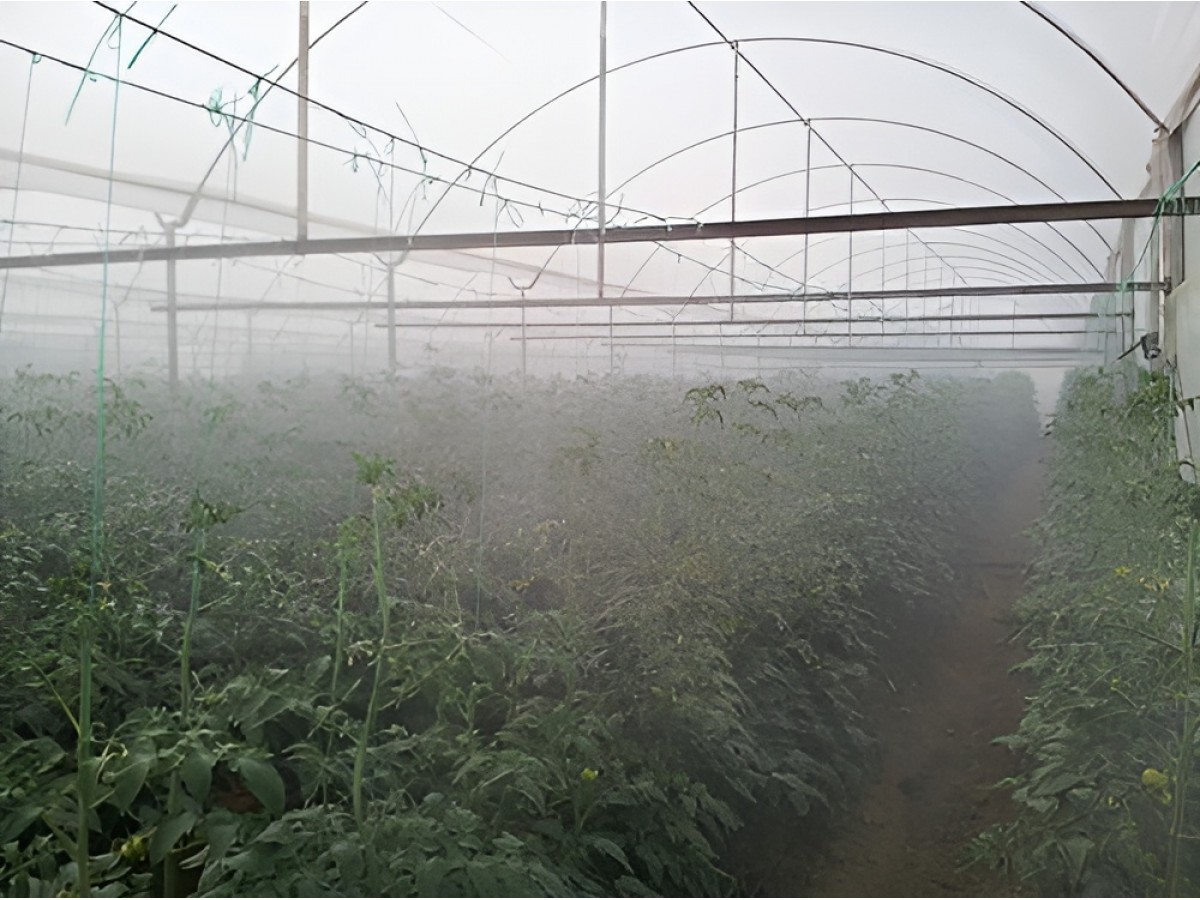Spain is one of Europe's leading agricultural countries, known for its olive groves, vineyards and citrus orchards. However, dry weather, water scarcity and rising temperatures due to climate change pose significant challenges for the agricultural sector. High-pressure artificial fog has become a key tool helping farmers adapt to these conditions and increase productivity.
Fighting heat and drought
Spain is facing hot and dry summers. Under these conditions, plants experience heat stress, which:
- Slows down their growth.
- Reduces productivity.
- Can cause damage and death to crops.
Solution:
- Artificial fog helps to reduce the temperature around plants by 4-8°C, creating a more favourable microclimate.
- Air humidification prevents excessive evaporation of soil moisture, maintaining an adequate water balance.
- In greenhouses, artificial fog makes it possible to control the climate, creating stable conditions for cultivation.
Optimising water consumption
Water is one of the most valuable resources in Spain, especially in the southern regions that suffer from scarcity. Traditional irrigation methods (drip or sprinkler) can be inefficient, as water evaporates quickly or seeps into unnecessary layers of soil.
How artificial fog helps:
- The spraying of ultra-fine droplets (less than 10 microns) ensures maximum humidification efficiency.
- 30% to 50% less water is used compared to traditional irrigation.
- Farmers can automate the system, adjusting the amount of fog based on air temperature and humidity.
Improving crop quality
For many agricultural crops, stable weather conditions are essential for their growth and ripening.
- Vineyards and wineries: Artificial fog helps prevent overheating of grapes, which influences the taste and acidity of the wine.
- Olive groves: Maintaining humidity promotes better quality. fruit development and increases oil content in olives.
- Citrus groves: Humidity control protects trees from sudden temperature changes and prolongs the fruiting period.
Dust and pest prevention
- In hot, dry climates, dust can negatively affect plants, reducing the efficiency of photosynthesis.
- Some pests (such as spider mites) breed more actively in dry environments.
- Artificial fog helps reduce dust levels and creates less favorable conditions for pests, decreasing the need for pesticides.
Use in livestock farming
Farmers also apply artificial fog in livestock facilities to:
- Cool cows and pigs, which increases productivity and reduces stress on the animals.
- Maintain optimal humidity levels in poultry farms (such as in chicken farming).
Spanish farmers are increasingly aware of the advantages of high-pressure artificial fog as an efficient, environmentally friendly and economical climate solution. Thanks to the reduction in temperature, the optimization of water consumption and the protection of crops, this technology is becoming an essential part of modern agriculture in Spain.
With increasing global warming, the demand for these systems will only grow, and farmers who invest in them today will gain a significant advantage in the future.


Write a comment